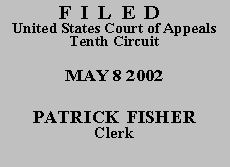

| UNITED STATES OF AMERICA,
Plaintiff - Appellee, v. CARLOS GUERRERO-CORREA, also known as Roberto Rojas-Flores, Defendant - Appellant. |
|
Appellant was indicted for and pleaded guilty to one count of illegal reentry into the United States after deportation in violation of 8 U.S.C. § 1326. The maximum sentence penalty under the statute is two years' imprisonment. Subsection (b) of the statute increases the maximum possible penalty to twenty years' imprisonment if the defendant was convicted of an aggravated felony before deportation. See 8 U.S.C. § 1326(b). The district court sentenced appellant to eighty-four months' imprisonment followed by three years of supervised release. This sentence included an enhancement based on a prior aggravated felony conviction.
On appeal, appellant(1) argues the maximum prison term to which he is subject is two years. He argues this limit is consistent with the maximum penalty contained in § 1326(a), which was the offense alleged in the indictment and the offense to which he pleaded guilty. His argument rests on the United States Supreme Court's decision in Apprendi v. New Jersey, 530 U.S. 466 (2000).
In Apprendi, the Court held "[o]ther than the fact of a prior conviction, any fact that increases the penalty for a crime beyond the prescribed statutory maximum must be submitted to a jury, and proved beyond a reasonable doubt." Id. at 490 (emphasis added). As appellant acknowledges, and as the language quoted above makes clear, the Apprendi rule is subject to an explicit exception for prior convictions.
Appellant states he brings his appeal in part to preserve an argument for the Supreme Court. He has done so. At this time, however, appellant's argument based on Apprendi is without merit.
In his pro se notice of appeal, appellant asserts several additional arguments. First, he argues he received ineffective assistance of trial counsel. Ineffective assistance of counsel claims should be brought in collateral proceedings rather than on direct appeal. See United States v. Galloway, 56 F.3d 1239, 1240 (10th Cir. 1995).
Second, appellant argues the district court subjected him to double punishment in violation of the United States Constitution by imposing a sentence for the instant offense based on his prior aggravated felony conviction, for which he already served four years in prison. However, the sentencing guidelines require a judge to consider a prior conviction when calculating an offense level and a criminal history category. See United States v. Florentino, 922 F.2d 1443, 1447 (10th Cir. 1990).
Third, appellant argues the current form of 8 U.S.C. § 1326 was enacted after his deportation in 1985, and therefore, he cannot be punished for re-entry after deportation. However, the event for which appellant was sentenced was his re-entry, not his deportation, and his re-entry occurred after enactment of the current form of § 1326.
The judgment of the United States District Court for the District of Utah is AFFIRMED. Appellant's pro se requests for an extension of time and for appointment of counsel are DENIED.
Entered for the Court
Circuit Judge
*. This order and judgment is not binding precedent, except under the doctrines of law of the case, res judicata, and collateral estoppel. The court generally disfavors the citation of orders and judgments; nevertheless, an order and judgment may be cited under the terms and conditions of 10th Cir. R. 36.3.
1. Counsel for appellant filed a brief pursuant to Anders v. California, 386 U.S. 738 (1967), and appellant filed a pro se response, in which he requests appointment of new counsel and an extension of time within which he may find new counsel.